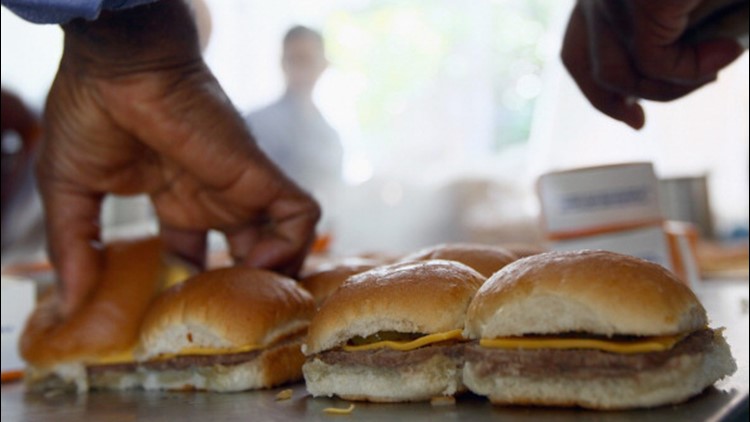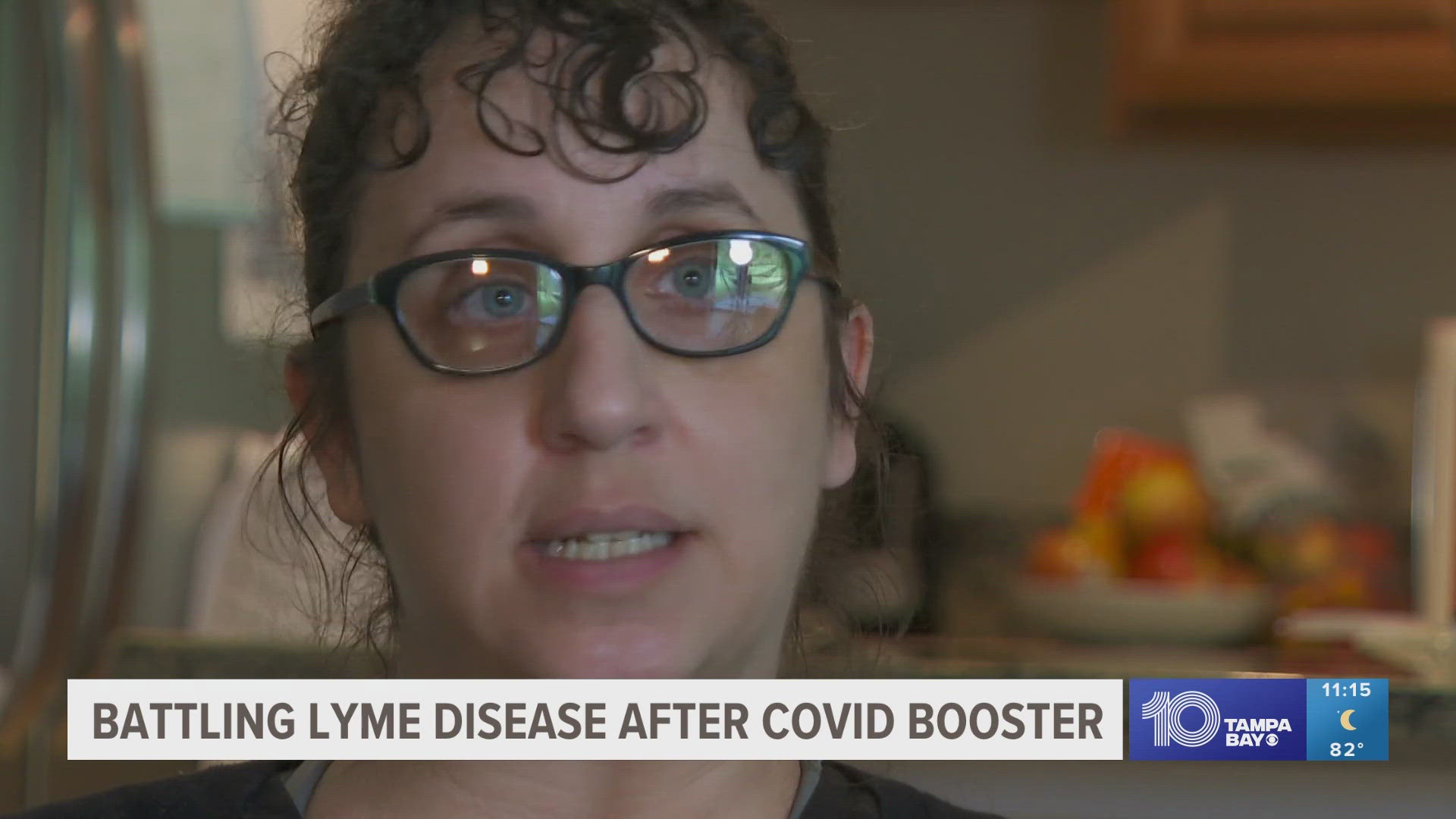The new wave of plant-based "meat" is going mainstream — and straight into one of America's most iconic fast-food burgers, the White Castle slider.
White Castle is announcing it is introducing a vegetarian fake-meat version of its famous mini-burgers. The burger uses a patty made by a California-based start-up, Impossible Foods, which is one of several scientifically engineered products made to make plant-based ingredients taste uncannily like juicy ground beef.
Called the Impossible Slider, it will be initially sold at 140 White Castle eateries in the New York, New Jersey and greater Chicago areas with the potential for a nationwide rollout.
The White Castle Impossible Slider — made with smoked cheddar cheese, pickles, onions and a bun — features a 2-ounce patty and costs $1.99. That compares to the chain's traditional 0.9-ounce mini-cheeseburger at about 94 cents, depending on the store location.
The new choice might come as a surprise to White Castle devotees, especially since the fake-beef burgers have largely been confined to more highbrow burger chains and restaurants until now. But White Castle executives figured it was time to give fake beef a try.
"Plant-based proteins are growing. We felt it was a good opportunity to test it with our customers," CEO Lisa Ingram said. "We think it will appeal to a broad range of customers — those that are meat eaters who want to try something different and non-meat eaters who want this."
She also said the new sliders might bring in new customers, too.
This isn't White Castle's first foray into meatless. It has been selling a Veggie Slider since 2015.
The new Slider is bigger, because "the new taste comes through more fully" when that size patty is on the regular 2-inch-squared bun, according to the company.
Until now, Impossible Foods' faux meat was served in more upscale chains, such as Fatburger, Umami and actor Mark Wahlberg’s Wahlburger restaurant.
Competitor Beyond Meat's Beyond Burgers joined the TGI Friday's menu in January and can be found on shelves of large stores such as Kroger and Target.
Animal-protein titan Tyson Foods, which acquired a 5% ownership stake in Bill Gates-backed Beyond Meat in 2016, increased its investment in December to an undisclosed amount. Last fall, Nestle announced plans to acquire Sweet Earth, a plant-based foods manufacturer.
The Impossible Slider represents what few in the traditional beef industry thought possible — that cowless meat would be a hit in a country known for its meat-and-potatoes diet and love of burgers.
Plant-based meat alternatives are growing at rate of about 11% a year, according to the research firm Acosta. The market isn't just vegetarians: Some 71% of people who buy plant-based meat also eat the real thing.
The meat imitators present enough of a threat that in February, the U.S. Cattlemen's Association filed a petition with the U.S. Department of Agriculture, asking that the terms "meat" and "beef" be applied only to food made directly from animals. Impossible Foods' burger is made of water, wheat protein, potato protein, coconut oil and heme, an iron-heavy molecule that gives it its meaty taste.
"Interest in meat alternatives seems to be driven by consumers at large, not just those looking for vegetarian lifestyles, but looking for diversification of tastes and health benefits," said Billy Roberts, senior food and drink analyst at the global market research firm Mintel.
"Our business is a growth business. There’ll be increased demands for products like the Impossible Burger," Impossible Foods Chief Operating Officer David Lee said. "People are increasingly asking about what impact food has on the environment and our health."
His company recently expanded its manufacturing facility in Oakland and can produce 1 million pounds of its meat alternatives a month. That's what will enable Impossible Foods to produce all the patties White Castle needs, though the privately-held Columbus, Ohio-based 376-unit chain declined to say how many it needs to sell to say the new product is a success.



